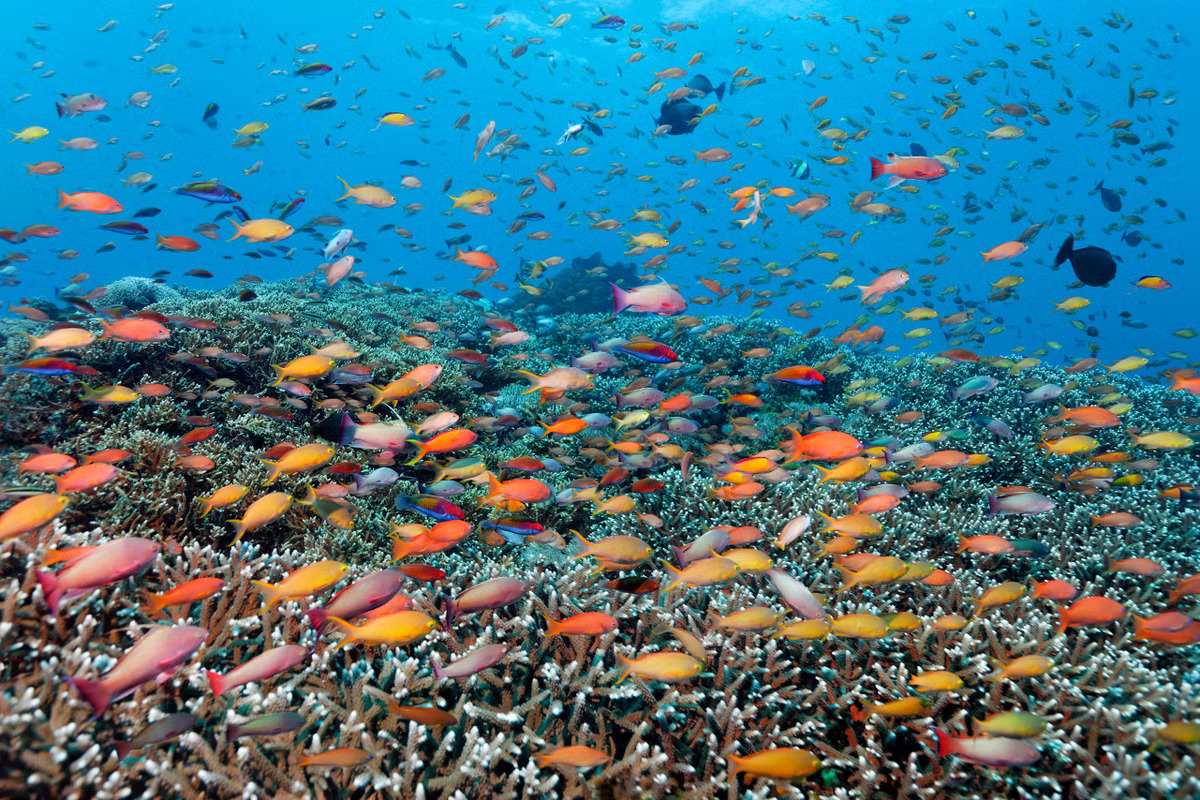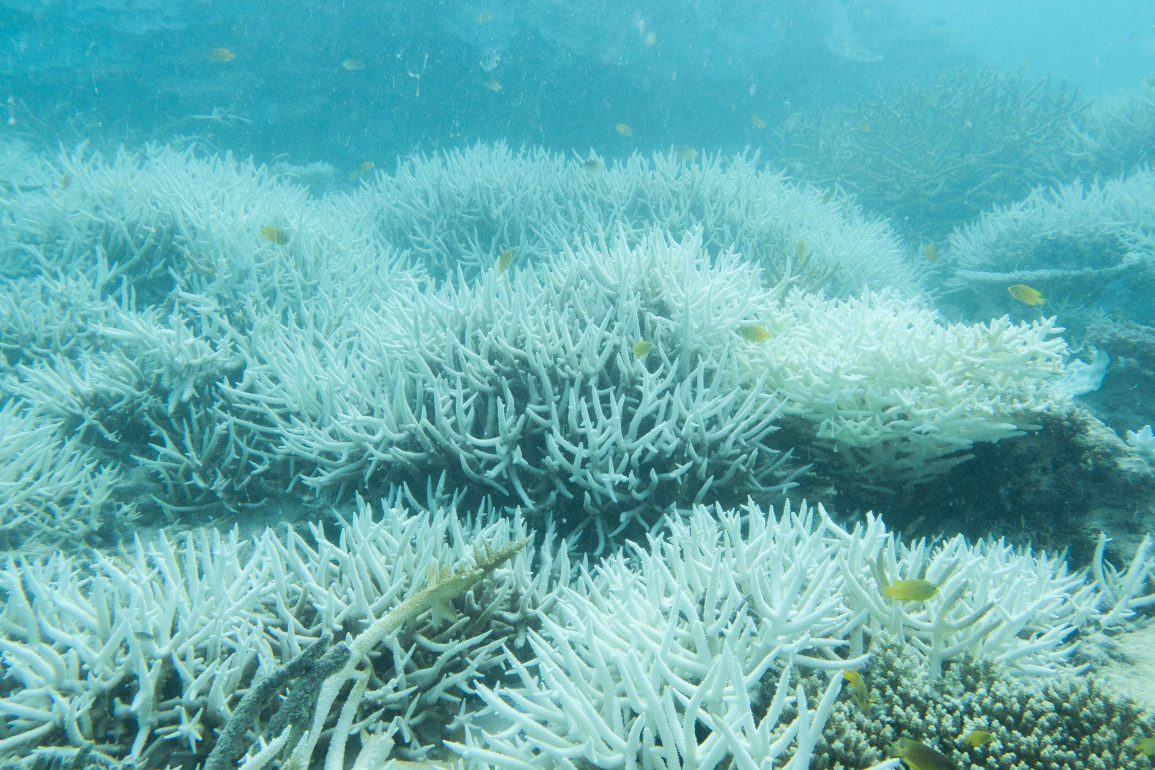Recent scientific research has revealed that ocean temperatures in the Great Barrier Reef have reached their highest levels in at least 400 years, posing an “existential threat” to this unique natural wonder.
This conclusion was drawn from an analysis of long-lived corals, which record historical temperatures in their skeletons, and from modern climate models that attribute recent extreme temperatures to increased greenhouse gases largely resulting from fossil fuel combustion.
The study, published in *Nature*, underscores the urgent need for significant and rapid reductions in greenhouse gas emissions to prevent the potential collapse of this iconic ecosystem.
The study’s findings highlight the severe impact of global heating on the Great Barrier Reef, which has experienced its fifth mass coral bleaching event in just eight years. This latest bleaching episode, reported by scientists from the Australian Institute of Marine Science, was described as the most extensive and extreme on record.
Despite some regions of the reef showing high coral cover before the bleaching, the ongoing rise in temperatures continues to put immense stress on the coral, leading to a loss of the symbiotic algae that provide them with nutrients and color, making them more vulnerable to disease and death.

Researchers reconstructed a historical temperature record for the reef by analyzing corals dating back to 1618, finding that the year 2024 was the hottest in over four centuries, with temperatures 1.73°C above pre-1900 levels.
The study’s lead author, Dr. Benjamin Henley from the University of Melbourne, expressed shock at these findings, emphasizing the unprecedented nature of the recent temperature spike. The study also noted that five of the six warmest years on record for the reef occurred since 2004, all coinciding with mass coral bleaching events, further illustrating the reef’s vulnerability to rising ocean temperatures.
The study’s implications are significant, particularly for future assessments of the Great Barrier Reef’s status by the Australian government and UNESCO. Dr. Henley and other scientists involved in the research have called for these findings to be taken into account when evaluating the reef’s risk from global heating.
The study’s second author, Prof. Helen McGregor from the University of Wollongong, warned that without immediate action to address global warming, the reef faces a potential catastrophe, threatening even the centuries-old corals that provided the data for the research.
While the study paints a dire picture of the reef’s future, some experts, like Prof. Peter Mumby from the University of Queensland, caution against overly pessimistic conclusions. Although he acknowledged the established patterns of heat and coral bleaching, he pointed out that different parts of the reef and various coral species are responding differently to the rising temperatures.
Nonetheless, the research clearly reinforces the critical link between human-caused global heating and the unprecedented challenges facing the Great Barrier Reef, highlighting the urgent need for comprehensive climate action.

